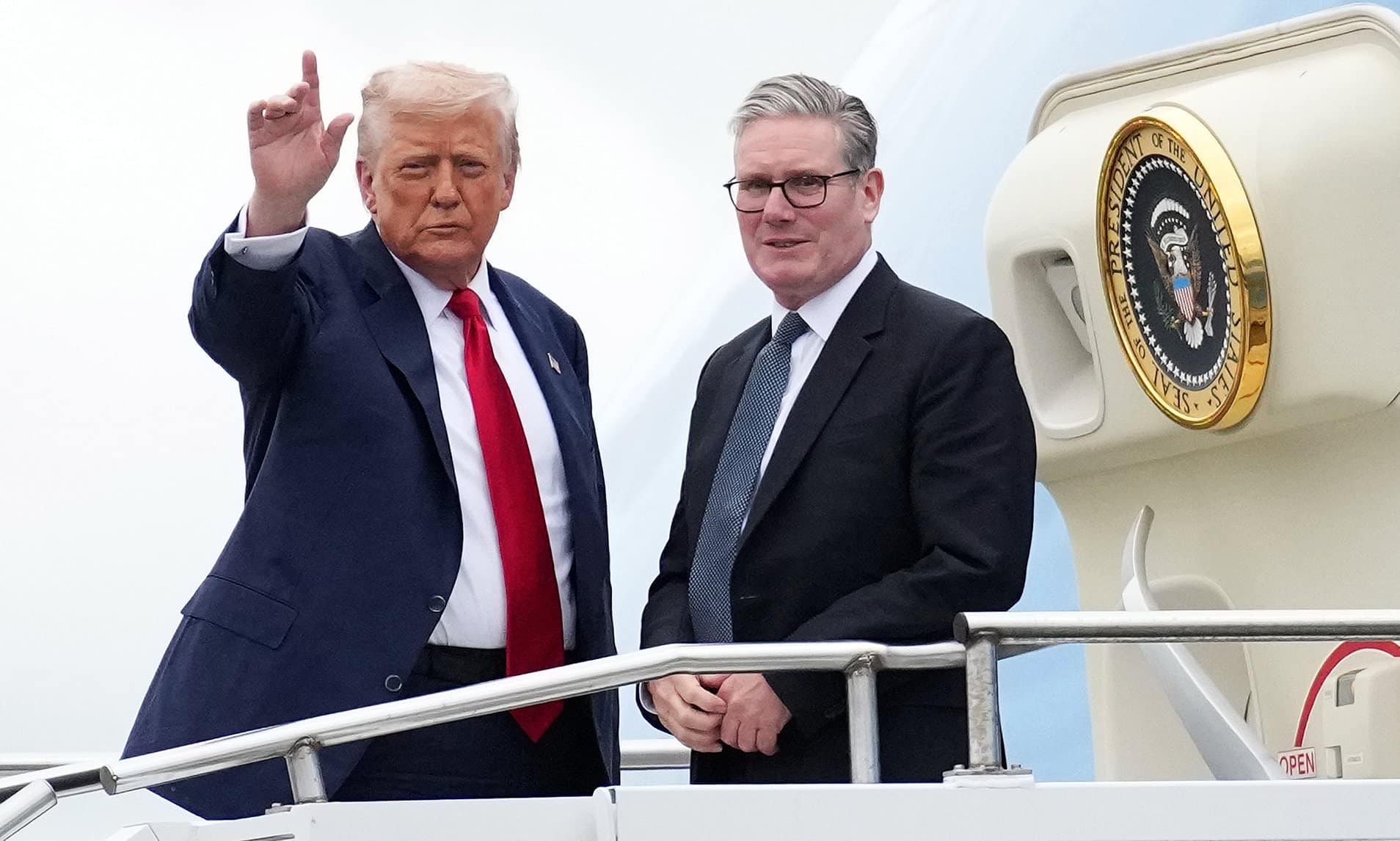Trump’s Comments on Scottish Independence Referendum
Donald Trump has suggested that another Scottish independence referendum should not occur until at least 2064, stating that countries “can’t go through that too much.” The former U.S. President made these remarks during his visit to Scotland, where he met with Prime Minister Sir Keir Starmer at the Turnberry golf course. His comments came shortly after John Swinney, the Deputy First Minister of Scotland, claimed that an SNP majority in next year’s Holyrood election would serve as a mandate for another independence referendum.
During a press conference with Sir Keir Starmer, Trump expressed his desire for Scotland to thrive and pledged to consider removing tariffs on Scotch whisky. He also advocated for increased North Sea drilling, urging Starmer to take advantage of the region’s oil reserves. When asked about the SNP’s plan to demand another independence referendum if it wins a majority in the upcoming elections, Trump recalled his prediction of the No vote in the 2014 referendum. He mentioned that there was an agreement not to hold a rerun of the vote for at least 50 years, emphasizing that a country cannot undergo such a process repeatedly.
Political Implications and Reactions
The SNP had previously described the 2014 referendum as a “once in a generation opportunity,” with figures like Alex Salmond and Nicola Sturgeon making similar claims. However, John Swinney’s recent assertion that a generation has passed since the 2014 vote has been widely criticized. Critics argue that less than 11 years have elapsed, making the claim seem absurd. Swinney defended his position by stating that a million people who were not eligible to vote in 2014 will be eligible by 2030, suggesting that a new referendum would allow these individuals to make their own choices regarding independence.
This argument has sparked backlash from various political figures. Scottish Conservative deputy leader Rachael Hamilton called Swinney’s claim “patently absurd” and accused him of trying to silence critics. She noted that the SNP’s obsession with breaking up the UK is tiresome for ordinary Scots, who are more concerned with issues like healthcare and education. Similarly, Scottish Labour deputy leader Jackie Baillie criticized the SNP for losing its way and focusing on division rather than addressing pressing concerns such as NHS waiting lists.
Public Sentiment and Concerns
Alastair Cameron, chairman of Scotland in Union, argued that the SNP’s rhetoric is a desperate attempt to rally support among activists. He emphasized that the majority of Scots prioritize issues like health, schools, and jobs over independence. The ongoing debate highlights the deep divisions within Scottish politics, with some advocating for continued union with the UK while others push for full independence.
The SNP’s renewed focus on independence comes amid growing dissatisfaction with its governance. Critics point to the party’s failure to address key public services and its high taxation policies. As the political landscape in Scotland continues to evolve, the question of independence remains a contentious and polarizing issue. With the next Holyrood elections approaching, the SNP’s strategy to regain support through constitutional debates will likely shape the future of Scottish politics.

